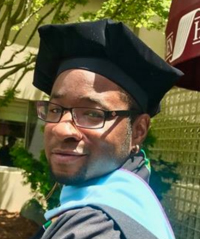This post was guest authored by Don Frazier.
We know that adolescence is a time of anxiety, stress, and turmoil, as evidenced by the increasing rates of teen suicide, violence, and so on. Incorporating race, gender, and scholastic identities into the teenage angst adds additional and complex stressors. These anxieties are often intensified for Black youth, who experience persistent and hopelessly unaddressed social, cultural, and economic inconveniences.
While Black youth bring to the classroom a wealth of real-world experiences such as resilience, critical awareness, and problem-solving, all too often normal teenage behaviors such as mood swings, lying, defying rules, and arguing exhibited by Black youth are perceived as criminal behaviors. This results in punitive measures which, though thought to rectify teens’ behavior, ultimately damage students’ relationships with educators and schools.
Educators who discern the lived familiarities and complex realities Black youth experience are one step closer to supporting the personhood Black youth are often deprived of in traditional school settings. Black youth value educators who show a desire to appreciate them as people, not just students. One’s sense of human worth is fostered through enriching, authentic, and honest interactions, and educators are critical factors to the socio-academic experiences of Black youth.
What Are Socio-academic Experiences?
Enriching socio-academic experiences occur when educators demonstrate their ability to
- recognize the psychological, sociocultural, and emotional pressures adolescents experience;
- offer consistent caring reinforcements to help students reacquaint themselves, and
- emphasize the logical skillsets students use to facilitate themselves in ways that serves their well-being as well as others’.
Educators who take ownership over the ways in which their position influences their relationship with Black youth are better able to understand the many pressures that actually affect Black youth.
Why? Simply put, because Black youth perceive educators as either advocates or antagonists of the Black youth experience.
Educators who construct time to responsively validate the perspectives of Black youth earn the respect that is required for enriching socio-academic experiences to take place. Educators connect with Black youth by individualizing learning opportunities that highlight the social, emotional, and academic capabilities of Black youth. Black youth respectfully respond to educators when they feel valued and cared for.
Educators who work with Black youth in educational contexts are not removed from the experiences they deal with outside the school community. Since educators usually represent symbols of opposing authority, Black youth challenge educators until trusting relationships are established and maintained through constant proof of care and respect; they develop reverence for those educators who are reliable, supportive, attentive, and straightforward with Black youth, parents, and other colleagues about the individual and collective actions and academic conditions affecting Black youth.
Enriching socio-academic experiences occur in spaces that invite students and adults to exchange experiences in relation to one another.
Educators who emphasize the practical dexterities and life-enhancing mindsets Black youth use to aid themselves positively influence the socio-academic experiences of Black youth. In return, the desires of Black youth to succeed socially and academically increase, and require a consistent cycle of acknowledgement, acceptance, and action on the part of caring educators.
In addition, educators can utilize the power of group dynamics either in the classroom, through mentorships and/or by way of social clubs such as the Black Student Union to reinforce the collective socio-academic capabilities Black youth demonstrate throughout their school community.
Enriching socio-academic experiences is about fostering an educator-student relation where each learns from the other, through the sharing of ideas, acceptance of differences, and acknowledgement of each other’s lived experiences.
Educators who are able to cultivate learning spaces of relevancy not only acknowledge and affirm Black youths’ lived experiences, but they also empower Black youth to be the architects of their own socio-academic capacities.
As a result, educators and Black youth are both able to contribute to the overall enrichment and learning experiences of Black youth.

Dr. Don Frazier, Jr., is currently Dean of Students/Head Counselor at a public high school in San Francisco, and is also an educational consultant. Don can be contacted at donfrazierjr@gmail.com

